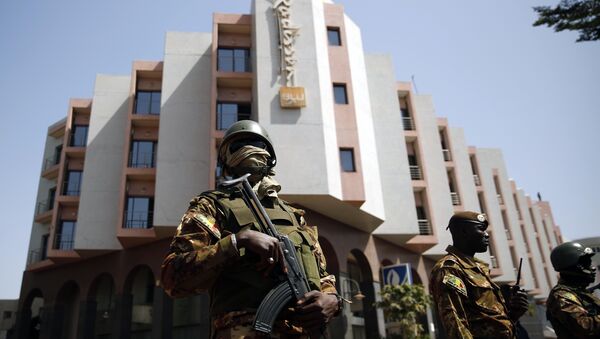At this time it’s impossible to tell whether the Bamako attack was connected to the November 13 attack in Paris or if it was in retaliation for French military intervention in Mali in 2013, and the authorities have no evidence of ISIL involvement according to the magazine
Furthermore, the allegiance of al-Murabitun – a jihadist group founded by a former al-Qaeda commander Mokhtar Belmokhtar – is uncertain. The Atlantic points out that earlier this year an alleged speaker for the group claimed that a—Murabitun pledged allegiance to ISIL, but that information was denounced by Belmokhtar himself.
"If [ISIL] turns out to be linked to the Bamako raid, it would be the first time that movement has taken action or been seen to be present there. IS certainly has no official representative or presence in Mali, even if there were rumours this summer that some radical leaders active in the north were looking for an IS affiliation," Jean-Hervé Jezequel of the International Crisis Group told the Atlantic.
Following its somewhat successful intervention in the Mali conflict in 2013, France now maintains a military contingent of about 3,000 in the region. Paul Melly, a Francophone Africa expert at Chatham House, told the BBC that while the French forces managed to scatter the Islamists, the latter are a force far from being beaten.
"Jihadist groups dispersed across the desert," he said. "In the Sahara, it’s very difficult to control people moving around."
Following the official end of the civil war, the Islamist movement in Mali became more decentralized and splintered, with separate groups launching attacks all across the country throughout 2015.



